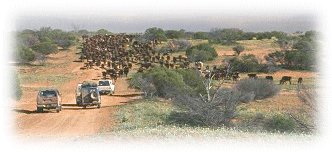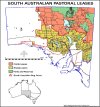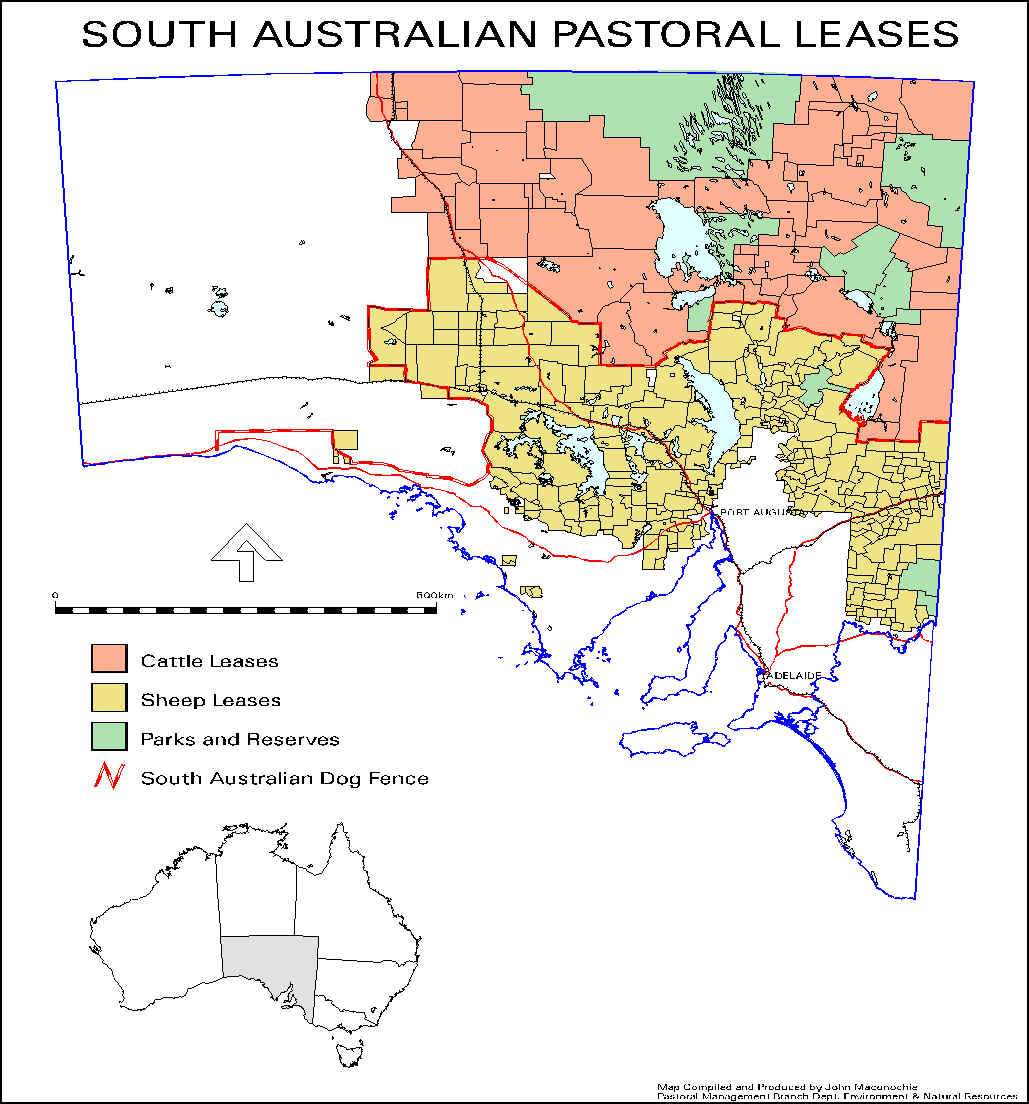
Travellers need to be mindfull that a living is made from the leases they travel across.
Public Access to Pastoral Lands
Pastoral lands - what are they
Pastoral lands are that area of the State outside of the incorporated (council) districts which have been classified as suitable for the grazing of stock. Very broadly they are represented by the area north of Goyder's rainfall line (see map below) and comprise about 70% of the State. They are subject to a form of tenure known as Pastoral Leases. These leases are subdivided into two classes, those in the more southerly region being for sheep grazing while those in the northern region (north of the Dog Fence) are for cattle grazing.
They are not vacant lands. There are families living there who lease the land for pastoral purposes which provides a major source of income to the State and is home to these families.
The public does not have open access to these lands. Public access to these lands is governed by Section 48 of the Pastoral Land Management and Conservation Act 1989 which is reproduced below. This Act places a number of obligations upon persons intending to traverse pastoral leases. Apart from these legal obligations, travellers should remain aware that the families living on these leases have a right and need to carry on their pastoral business in as unfettered a manner as possible and to enjoy a reasonable measure of privacy.
See our page on Public Access Routes (PAR) that provide some access on Pastoral areas.
Legislation (The Act)
PASTORAL LAND MANAGEMENT AND CONSERVATION ACT 1989
Right to travel across and camp on pastoral land
|
48. |
(1) Subject to this Act, a person may travel (by any means) or camp temporarily on a public access route.
(2) Subject to this Act, a person may, on giving oral or written notice to the lessee, travel across pastoral land (3) Subject to this Act, a person may, with the consent of the lessee or the Minister, travel across pastoral land (otherwise than on a public access route) by means of a motor vehicle, a horse or a camel and, in the course of so travelling, camp temporarily on the land. (4) This section does not give a person the right to camp-   (a) within a radius of one kilometre of any house, shed or other outbuilding on the land; or (b) within a radius of 500 metres of a dam or any other constructed stock watering point on the land. (5) A person who proposes to travel across or camp on pastoral land in the manner referred to in subsection (3) must first seek the lessee's consent to the proposal and the lessee may refuse that consent if of the opinion that it is necessary to do so for the purposes of the safety of the public, the management of stock or the carrying out of rehabilitative work on the land or for any other good and sufficient reason. (6) If the lessee refuses to consent to a proposal under subsection (5), the person may seek the Minister's consent to the proposal. (7) The Minister may, without consulting the lessee, consent to the proposal but, if the Minister consents to the proposal without consulting the lessee, the proposal cannot be carried out until the Minister has notified the lessee that consent has been given. (8) The Minister incurs no liability by virtue of giving consent to a proposal to travel across or camp on pastoral land. (9) For the purposes of this section, camping is temporary if it is for a period not exceeding two weeks or, if some other greater or lesser period is prescribed in respect of a particular area, that period in relation to camping in that area. |
What Intending travellers should do
- Obtain an RAA Outback map (free if you are an RAA member). If your intended journey will remain entirely on the roads shown, you will be travelling within the Public Road network and therefore will not need to obtain consent to traverse any pastoral leases. You may however need to purchase an appropriate Parks Pass if your journey includes any National Parks and Wildlife SA reserves or an appropriate permit if you intend to traverse any Aboriginal Lands.
-
If you intend venturing off the above Public Road network, refer to the map below for a broad indication of whether your intended journey will include a pastoral lease. If so, follow the procedure below to apply for the necessary consent:
- Establish the name(s) of the lease(s) for which consent will be required by purchasing a full size version of the map below from the following outlets:
- Obtain a Pastoral Leases List from Outback SA, Level 6, 101 Grenfell St., ADELAIDE SA 5000 or telephone 1 800 678 477 and select the contact details for those pastoral leases for which consent will be required. Club Members note that your Trips Coordinator will probably have this list available.
- Contact the relevant pastoral lessee(s) by telephone or letter well in advance of your proposed trip. Be prepared to give clear details of your intended route, the date(s) involved and whether camping is also intended. If consent is granted take careful note of any instructions or conditions attached to that consent and make sure you abide by them. Be aware however that consent may not be granted because of pastoral management issues or other local conditions at that time.
You may need to reschedule your trip for another more appropriate period.
Pastoral Map of South Australia
As at July 2020, a detailed map can be purchased online from environment.sa.gov.au as a PDF ($10) or A0 Print ($35). Select "State Wide Maps" in the Map Finder's Product Finder selection and select "State Map - Pastoral Areas of South Australia".


